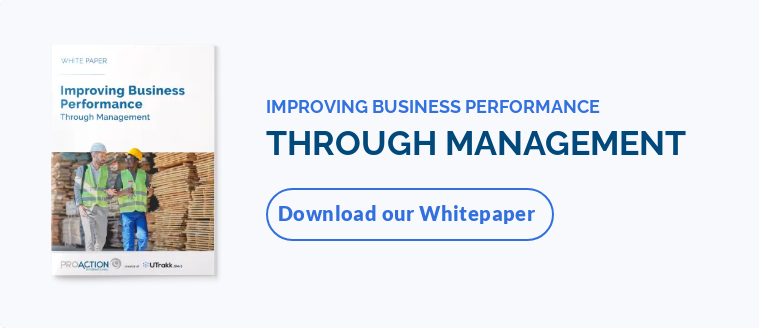What is self-determination theory?
Self-determination theory (SDT) is a psychological approach to motivation and personality, focusing on the natural tendency of individuals to grow, learn, and develop. It is based on the idea that human beings are motivated by three basic psychological needs:
- Autonomy (the power to act freely): The need for autonomy reflects the need for each individual to own their actions.
- Competence (the assurance of success): The need for competence refers to the desire to feel capable of accomplishing tasks, overcoming challenges, and achieving fulfillment.
- Relatedness (the need for affiliation): The need for connection with others highlights the importance of interpersonal relationships and the feeling of belonging in a group or community.
Introduced in the 1970s by Edward Deci and Richard Ryan, the self-determination theory perspective deepens existing concepts – such as the Maslow pyramid – emphasizing the importance of informed choice and self-management. It places the individual at the center of their decisions as the leading actor of their personal growth. It also uncovers the impact of the environment on basic psychological need satisfaction.
Widely studied and validated since then, self-determination theory brings together several mini-theories helping to better understand how human motivation works in multiple contexts. It can be applied in many areas – improving employee engagement in companies, promoting healthy behaviors (physical activity, non-smoking, etc.), improving academic results, etc.
Intrinsic and extrinsic motivation from a self-determination theory perspective
Self-determination theory distinguishes two types of motivation:
- Intrinsic motivation describes an individual's ability to engage in and complete an activity for its own sake, because it is rewarding, interesting, enjoyable, or satisfying.
- Extrinsic motivation refers to an individual's ability to engage in and complete an activity guided by external incentives or rewards (appraisal, compensation prospects, punishment, social pressure, etc.).
Extrinsic and intrinsic motivation are opposed to each other. Extrinsic motivation comes from external factors and leads people to comply with the standards of others. In contrast, intrinsic motivation comes from the individual and what they gain from the performed activity.
However, according to self-determination theory, these two types of motivation are not static and can evolve. By fulfilling the three fundamental needs of autonomy, competence, and relatedness, controlled extrinsic motivation can be transformed into a more personal and autonomous motivation.
For example, an employee that executes a task solely to obtain extrinsic rewards may, over time, find personal meaning or interest in it if the work environment supports their aspirations and development.
The influence of relationships and context on self-determination
Self-determination theory shows that psychological growth and human development do not happen automatically. These processes require a favorable environment and ongoing social support. According to Deci and Ryan, social and family context and interactions are key in satisfying intrinsic motivation's three basic psychological needs. They determine whether a person will develop a proactive attitude or adopt a passive behavior.
For example, a work environment that values collaboration, autonomy, and recognition of individual effort is conducive to intrinsic motivation. Conversely, a workplace where external pressures dominate (strict rewards or punishments) can lead to demotivation or dependence on extrinsic motivators.
The quality of relationships also has a big influence on mental health and psychological well-being. Positive relationships can encourage engagement and personal development, while toxic or oppressive relationships can hinder them.
Self-determination also depends on support from those around us. When people feel respected and encouraged to exercise their autonomy, they are more likely to develop self-motivation and flourish. Conversely, relationships based on control or criticism can dampen this motivation and hinder well-being.
Examples of self-determined behaviors
Here are a few examples of how self-determination can be demonstrated in various contexts:
- A college student chooses to study a subject they're passionate about instead of doing what their parents or society expects them to do.
- A person leaves a well-paid job they don't like to start their own business, despite the uncertainty and risks involved.
- A person sets personal fitness or health goals and takes the means to achieve them, knowing the obstacles ahead.
- A person defends their personal beliefs and values, even if they go against the opinions of others.
- A person with a disability decides how to live their life and what support they need based on their own opinion, rather than letting others choose for them.
- A manager takes the lead on new projects, strategies, or procedures for their team.
Self-determination theory and motivation in the workplace
The three basic psychological needs identified by self-determination theory play a crucial role in employee motivation, engagement, and well-being.

1. Autonomy
- Employees participate in decision-making by setting their own goals or contributing to their team's strategies.
- Employees organize their work independently, choosing their methods and priorities when possible.
When autonomy is strengthened, employees feel accountable for their own performance, which boosts motivation and engagement.
2. Competence
- Employees' efforts and achievements are recognized through positive feedback, or opportunities for career advancement.
- Employees can access training, tools, and resources to develop their skills and solve professional challenges.
Workers whose skills are recognized and promoted are more actively engaged in what they do and experience both personal and job satisfaction.
3. Relatedness
- Collaboration and team support are valued within the company.
- Relations between colleagues are respectful and caring.
- Employees feel supported by their supervisors and recognized as an integral part of the organization.
Positive social relations not only boost employee motivation but also contribute to well-being and reduce stress in the workplace.
In companies focused on basic psychological need satisfaction, employee engagement is driven by a genuine interest in their job characteristics, not external pressures. This intrinsic motivation leads to better job performance, greater creativity, and lasting job satisfaction.
Conversely, neglecting these needs can lead to controlled motivation, defined by an engagement based on fear, reward, or pressure, which is less effective in the long term and can lead to burnout.
10 Ways to foster self-determination and motivation at work
Creating a work environment that encourages self-determination can transform how employees engage with their jobs and contribute to their company.
Here are 10 effective strategies to embrace self-determination theory and work motivation:

1. Boost employee self-esteem and autonomy
Allow employees to decide how to fulfill their roles and accomplish their tasks. Giving them more control over their work and involving them in decision-making can boost their self-esteem. Autonomy support can lead to increased accountability and productivity.
2. Offer skill development opportunities
Offer coaching, training, workshops, or mentoring programs to help employees develop their skills. By enabling them to progress and take on challenges, you support their need for competence and encourage their professional fulfillment. Developing their skills helps employees be more agile and autonomous.
3. Develop a sense of relatedness
Create a positive workplace where interpersonal relationships are valued. Unite employees around the company's mission and encourage them to work as a team. Organize team-building activities, foster mutual support, and ensure every employee feels part of the team. This sense of belonging contributes to collective as well as individual well-being.
4. Recognize and reward employees
Whether formal or informal, recognition helps feel a sense of competence and accomplishment. Take the time to congratulate employees individually or publicly for their work and contributions. Tailor rewards to suit personal preferences and organizational values.
5. Foster employee engagement
To build employee engagement, encourage employees to get involved in projects that foster a sense of purpose. Involve them in decision-making and problem-solving processes.
Let them contribute their ideas, be part of strategic initiatives, or get involved in extra-professional activities led by the company so that they feel part of the collective success.
6. Assign meaningful roles
Give employees responsibilities beyond routine tasks, allowing them to see how their work contributes to the organization's goals and mission. When team members understand the impact of their actions, they feel rewarded and part of something bigger, which boosts employee motivation and engagement.
7. Set goals aligned with organizational strategies
Set clear, measurable goals that reflect the company's priorities but ensure they align with employees' aspirations. Shared objectives bring consistency and make employees feel they contribute to a broader vision.
8. Provide regular and relevant feedback
Feedback is essential to help workers progress and feel competent. Give your teams regular, specific, and constructive feedback, highlighting their successes while pointing out areas for improvement. Feedback should be a support tool – not a control tool.
9. Demonstrate trust in your employees
Show your employees that you believe in their skills and judgment. Avoid micromanagement and empower them to make decisions. This confidence reinforces their sense of autonomy and self-worth.
10. Promote work-life balance
Implement policies that promote work-life balance, such as flexible working hours, remote work, or vacation based on individual needs. A well-managed work-life balance improves employee well-being and keeps them healthy, motivated, and productive, all while reducing work stress.
Developing self-determination and work motivation to elevate engagement and performance
More than a theory, self-determination is a crucial concept to understand the workings of human motivation. It offers companies a concrete tool for reconciling organizational performance and employee well-being.
By answering to employees' fundamental needs for autonomy, competence, and social affiliation, managers can build stimulating work environments where each individual feels valued and fully engaged. The benefits are endless. For companies, this translates into more engaged, innovative, and productive teams. For employees, it guarantees a workspace that considers their aspirations and need for self-fulfillment.
Given that well-being at work is one of today's key HR trends, integrating the principles of self-determination theory in your corporate culture is essential. By investing in intrinsic motivation, personal fulfillment, and talent development, organizations can ensure their success while meeting the expectations of today's workforce.









